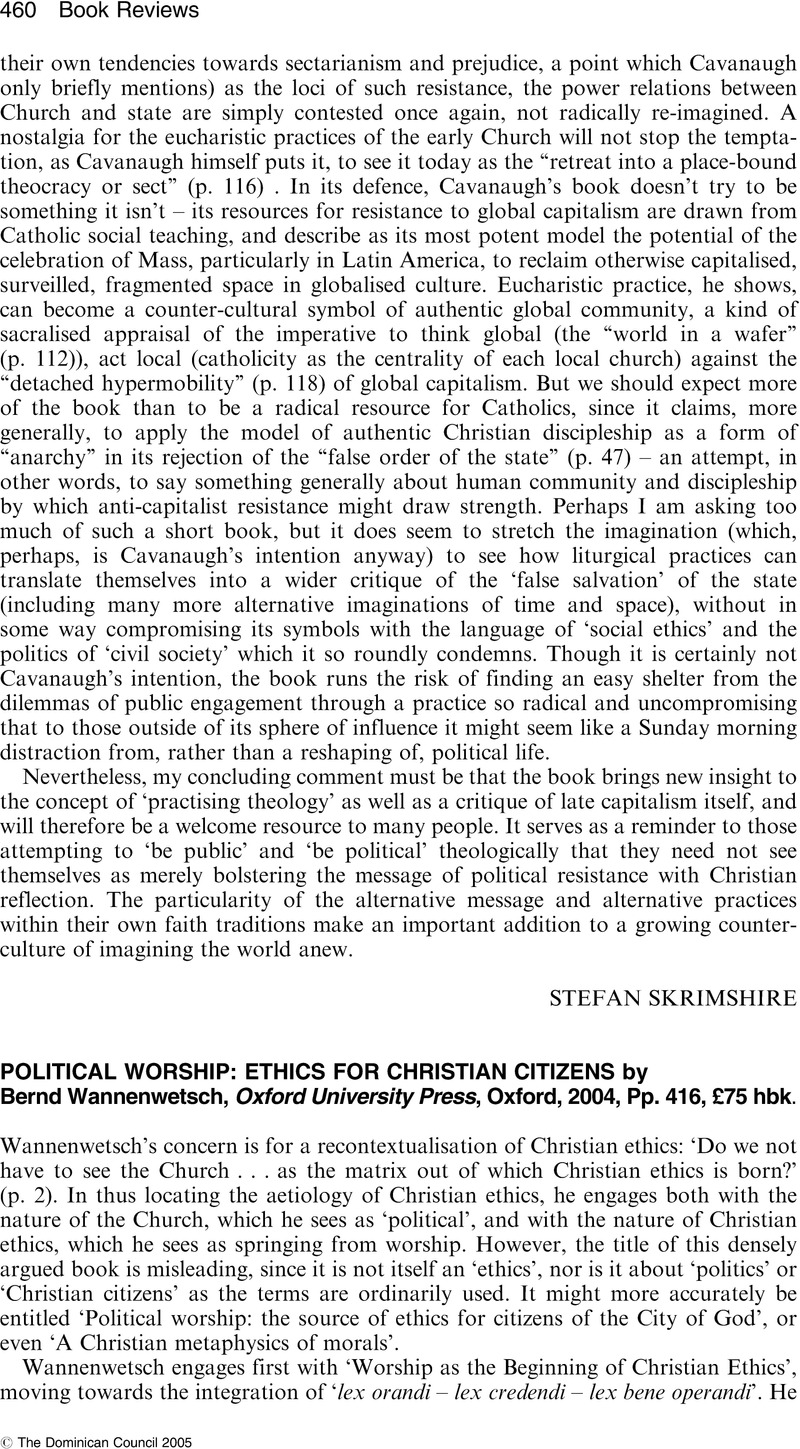No CrossRef data available.
Article contents
Political Worship: Ethics for Christian Citizens by Bernd Wannenwetsch, Oxford University Press, Oxford, 2004, Pp. 416, £75 hbk.
Review products
Political Worship: Ethics for Christian Citizens by Bernd Wannenwetsch, Oxford University Press, Oxford, 2004, Pp. 416, £75 hbk.
Published online by Cambridge University Press: 01 January 2024
Abstract
An abstract is not available for this content so a preview has been provided. Please use the Get access link above for information on how to access this content.

- Type
- Reviews
- Information
- Copyright
- Copyright © The Dominican Council 2005


